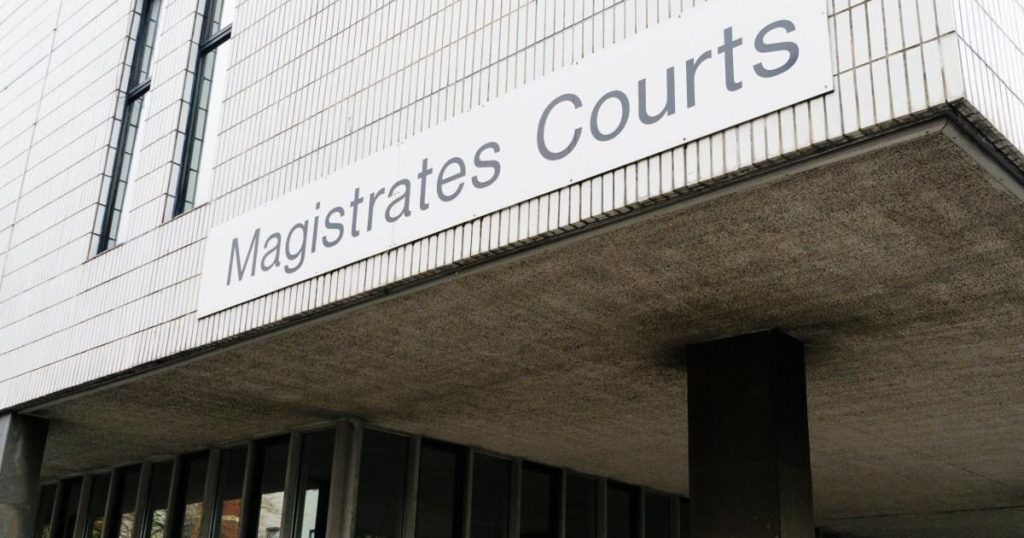Paragraph 1: Introduction and Incident Overview
Jonathan Dannatt, a magistrate with a previously unblemished seventeen-year record, found himself embroiled in controversy following an outburst in court. The incident, which took place at the Staffordshire Bench, involved Mr. Dannatt using profane language and directing harsh words towards a witness. The Judicial Conduct Investigations Office (JCIO) investigated the matter, concluding that Mr. Dannatt’s conduct amounted to serious misconduct. This incident raises important questions about judicial comportment, the impact of such behavior on public trust in the justice system, and the appropriate disciplinary measures for breaches of judicial ethics.
Paragraph 2: The Unfolding of Events and Witness Testimony
The incident unfolded after the bench, which included Mr. Dannatt, delivered its verdict in a case. According to the JCIO findings, Mr. Dannatt reacted to the verdict by uttering the expletive “this is sh*t.” Furthermore, he directed a comment towards a witness, telling them to “get out” in a manner perceived as abrupt and dismissive. The witness, visibly affected by the exchange, reported feeling “shocked and embarrassed” by Mr. Dannatt’s behavior. This emotional distress experienced by the witness highlights the potential impact of judicial misconduct on individuals involved in court proceedings.
Paragraph 3: Mr. Dannatt’s Explanation and Apology
Mr. Dannatt offered an explanation for his actions, attributing his outburst to concerns about the potential impact of the sentence on the defendant and their family, as well as the witness’s reaction to the outcome. While he acknowledged using the expletive, he claimed to have no recollection of telling the witness to “get out.” Despite this lack of memory, Mr. Dannatt expressed remorse for his behavior, describing himself as “horrified” and offering a “profound apology.” He further pledged to ensure that such an incident would never happen again. This expression of remorse, while important, does not negate the seriousness of the misconduct or its potential consequences.
Paragraph 4: The JCIO’s Ruling and Disciplinary Action
The JCIO’s investigation concluded that Mr. Dannatt’s language and behavior constituted a significant breach of the expected standards of conduct for a magistrate. They emphasized the risk of reputational damage to the magistracy and the emotional distress experienced by the witness. As a result of their findings, Mr. Justice Keehan, acting on behalf of the Lady Chief Justice and with the agreement of the Lord Chancellor, issued Mr. Dannatt a formal warning. This disciplinary action reflects the seriousness with which the judiciary views such misconduct and serves as a reminder of the importance of maintaining public trust in the integrity of the judicial process.
Paragraph 5: The Broader Implications of Judicial Misconduct
This incident underscores the crucial role of judicial officers in upholding the dignity and decorum of the court. Magistrates, as members of the judiciary, are expected to maintain impartiality, demonstrate respect for all participants in court proceedings, and avoid any behavior that could undermine public confidence in the justice system. Instances of judicial misconduct, such as this one involving Mr. Dannatt, can erode public trust and create the perception of bias or unfairness. Maintaining the highest standards of ethical conduct is essential for ensuring the legitimacy and effectiveness of the judicial process.
Paragraph 6: The Importance of Accountability and Preventing Future Incidents
The JCIO’s investigation and the subsequent disciplinary action against Mr. Dannatt demonstrate the importance of accountability within the judiciary. Addressing instances of misconduct promptly and transparently helps to maintain public confidence and reinforces the commitment to upholding ethical standards. Beyond individual cases, it is crucial to implement preventative measures to minimize the risk of future incidents. This might include providing ongoing training and education to judicial officers on ethical conduct, stress management, and appropriate courtroom demeanor. By fostering a culture of accountability and providing adequate support, the judiciary can strive to prevent future instances of misconduct and maintain the integrity of the justice system.











